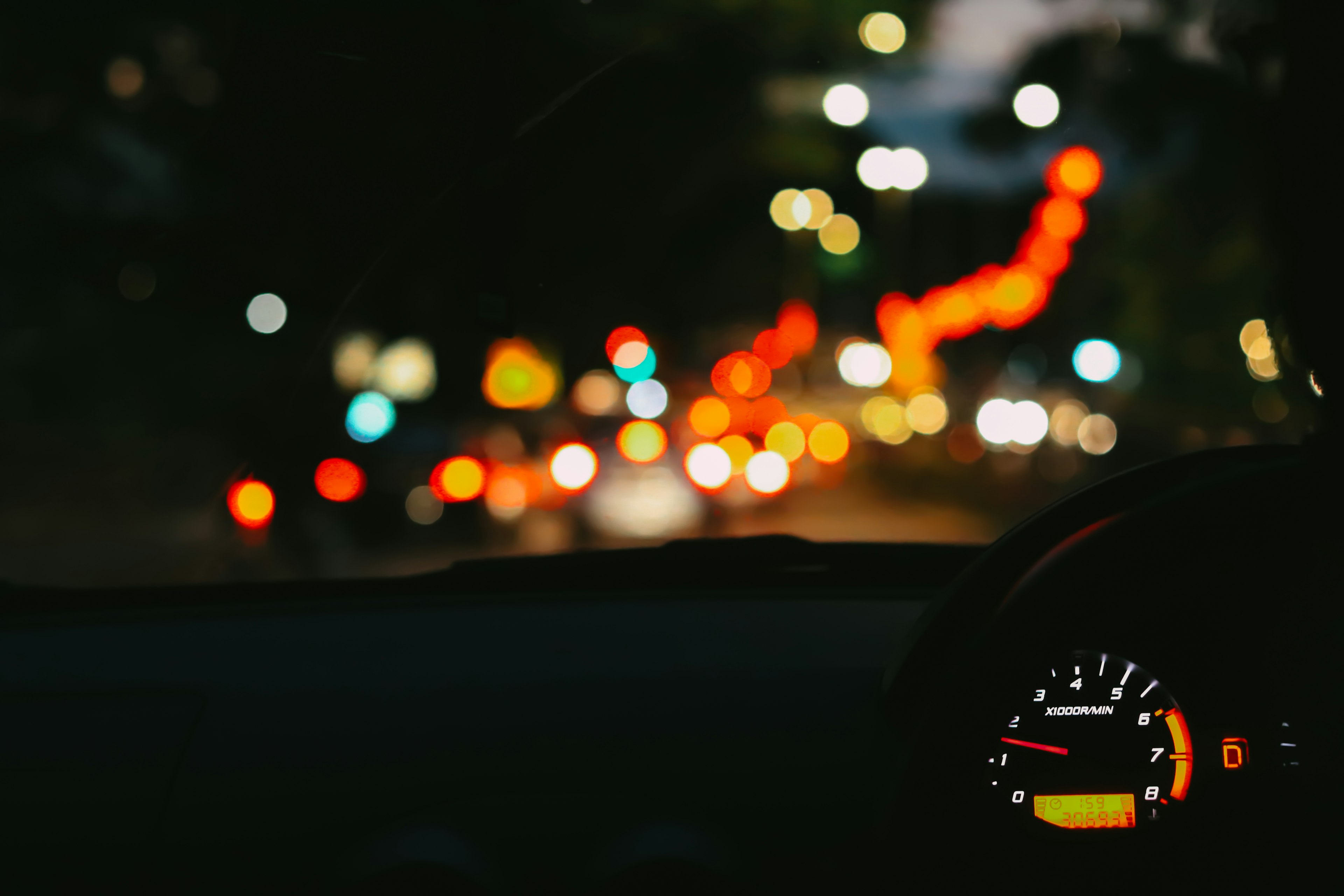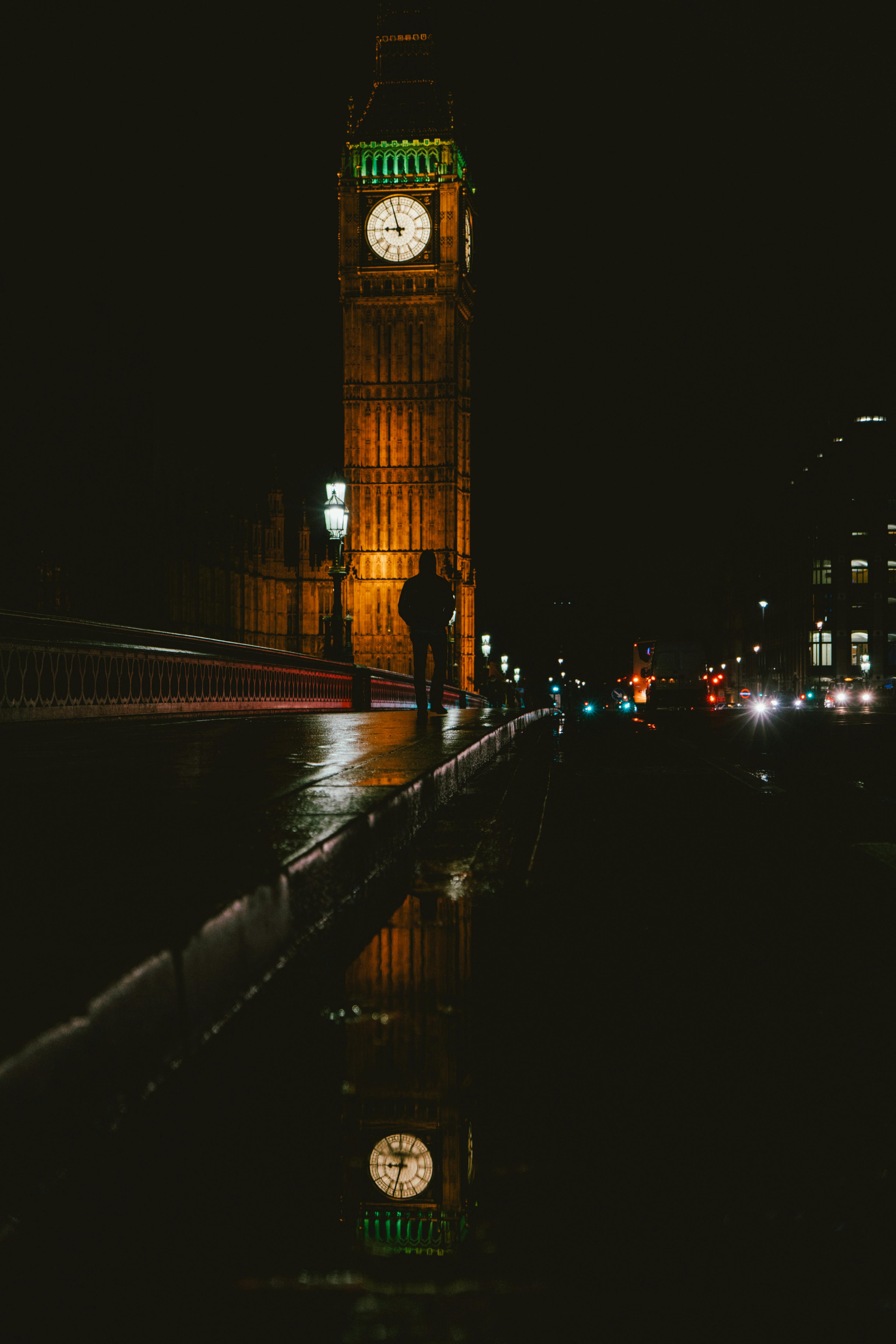
All motorists are subject to rules, but when you’re learning to drive, there are a few extra regulations you have to observe. Your provisional licence will allow you to take lessons, practise on A and B roads with a more experienced driver and even drive on motorways with an instructor. Other privileges are reserved for fully qualified drivers; you’ll only be permitted to drive solo once you’ve passed both your theory and practical tests.
But what about driving at night? Are learners allowed to get behind the wheel when it’s dark, or is there a curfew in place until you’ve earned your pink licence?
Can you drive at night on a provisional licence?
Although some countries do restrict the hours learner drivers are allowed on the roads, learners in the UK can, at the moment, drive at any time of the day or night. This is, of course, providing that you follow all the usual learner rules. Make sure you:
- Possess a valid provisional licence;
- Are insured to drive that vehicle;
- Are accompanied by a suitable person, whether that is your instructor, a family member or friend; and
- Correctly display ‘L’ plates (or ‘D’ plates in Wales)
You also need to make sure you’re not wearing tinted glasses. It’s hard enough to see in the dark without limiting your vision further!
If you’re complying with all of these rules, then you are absolutely allowed to get behind the wheel in the dark. It’s a good job, really: if you’re taking driving lessons in the winter, you might not be able to avoid doing so.
But, just because it’s permitted, should you actively choose to drive at night?
Why should you drive at night as a learner?
There’s no question that driving at night is riskier than in the daytime. Some learner driver insurance policies take this into account by imposing their own curfews or upping premiums if you decide to travel after dusk. And you certainly do need all your wits about you—but that’s why we actually encourage learners to drive at night.
Being able to adapt to different situations is the mark of a good driver—but in order to do so, you first need experience under your belt. And the safest way to build your experience? When you’re not in a hurry to get anywhere particular, and when you have someone there to support you if needed. Your driving lessons, therefore, provide an ideal opportunity to work on the skills you need for driving with different levels of natural light.
Hazard perception and spatial awareness can both be affected when you’re relying on car lights for vision, and it’s common to get more disorientated in the dark, even on roads you think you know well. In fact, for many of the techniques you’ll need to develop for night driving, such as averting your eyes from dazzle while maintaining focus and vision, there is no substitute for practising for real.
Are there any disadvantages to driving at night as a learner?
There really aren’t any downsides to venturing out after dusk on your provisional licence. Yes, it might take you out of your comfort zone, but at least you’ll be doing so with an experienced driver, rather than facing the situation for the first time on your own.
Of course, if you’re doing an intensive or semi-intensive driving course over the summer months, it might not be practical to get night time drives in.
If that’s the case, it’s worth asking a more experienced driver to sit with you when you do first go out after dark, just to build up your confidence.
Nervous about driving at night?
For some of the challenges you’ll come up against, you can get a head start by making sure you know the theory first. Get to grips with the rules about sidelights, dipped headlights and full beams, so that you'll be able to put them into action when needed.
If you’ve already passed your test, but find the prospect of driving in the dark nerve-wracking, you might want to consider taking a Pass Plus course. One of the key areas the course covers is driving at night—and you’d get bonus practice in other scenarios, too, like travelling on rural roads and driving in different weather conditions.
Alternatively, you could opt for a few refresher lessons, where you could ask your instructor to focus on driving during the hours of darkness. Extra lessons after you’ve passed are a great way to gain experience and up your confidence before venturing out at night alone.
Is the law going to change?
You may have heard rumours that a curfew may soon be imposed on learner drivers. Here’s what’s really going on. Newly passed drivers are more likely than any other group to be involved in an accident. This has led to calls to change the law about provisional and recently qualified drivers, in order to better prepare motorists for solo driving.
Road safety charity Brake claims that introducing a Graduated Driving Licence (GDL) would decrease collisions amongst less experienced drivers. They want minimum learning periods introduced, alongside restrictions on the passengers new drivers can take, and times they can travel. Such systems are already in place in New Zealand, Australia and the US, where they’ve been seen to reduce fatal crashes.

If this sort of scheme were introduced in the UK, it might mean that learners are banned from driving during hours of darkness. It could also mean you'd require extra lessons after passing their test with a specific focus on night driving, or that you'd have to remain under the supervision of another driver when out past the curfew.
One of the reasons such a law hasn’t been introduced already—although a pilot version of the GDL is currently being trialled in Northern Ireland—is the concern that new drivers often need to drive to work or school during hours of darkness. The proposals do take this into account, though, and it’s likely you’d still be allowed to commute at night.
And don’t worry: even if it’s decided that the laws around night time driving should be updated, it’ll be a while before any changes take effect. As always, we’ll keep you posted on any developments.
For now, enjoy the freedom of driving whenever the mood (and your social schedule) takes you. There’s really no need to fear driving at night—and if you can get the practice in as a learner driver, all the better!
You should also check that you know other rules specific to learner drivers—like whether you can drive with child passengers—as well as those every driver should be aware of, such as the laws on eyesight and monocular vision.
Subscribe for driving advice, offers & more
We'd love to let you know about our courses, news and offers via email. You may unsubscribe at any time.
Star Genie Limited trading as PassMeFast. Company number 10093359
Copyright © 2024 owned by Star Genie Limited
PassMeFast, Blue Tower, MediaCityUK, Salford, M50 2ST
